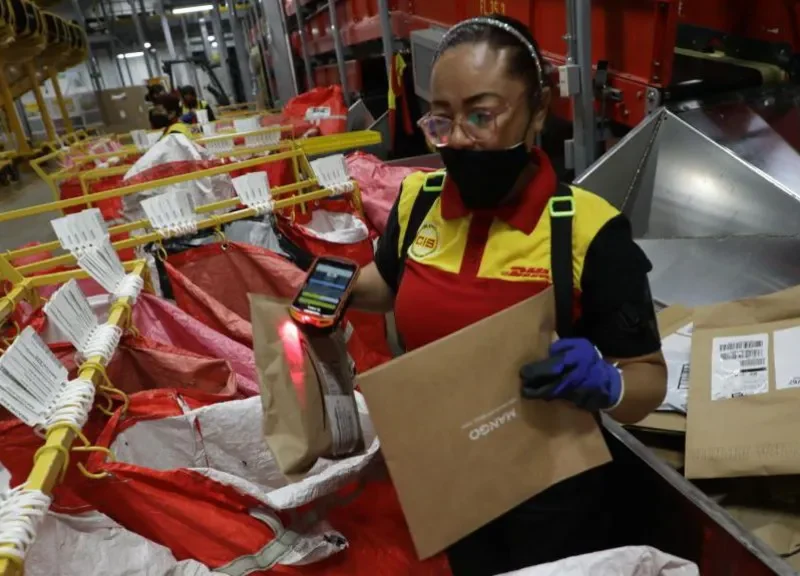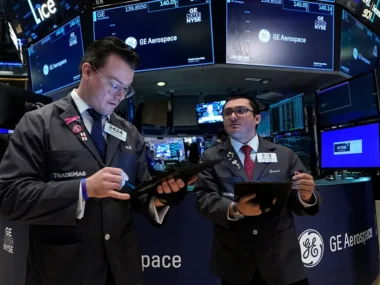DHL has ended its suspension on shipments over $800 (£603) to the US after reaching agreements on changes to customs procedures.
Earlier this month, the logistics firm had paused these deliveries, citing a “significant increase” in administrative hurdles resulting from President Donald Trump’s tariff measures.
Following “constructive dialogue” between industry representatives and the US government, DHL announced the suspension had been lifted.
A DHL spokesperson welcomed the outcome, noting the company’s appreciation for the federal government’s support in facilitating the adjustments. Requests for comment have been made to US Customs and Border Protection, the Department of Homeland Security, and the Department of Commerce.
This decision marks the latest chapter in the ongoing tension between businesses and the White House over tariff-related regulations.
Previously, shipments valued up to $2,500 could enter the US with minimal processing. However, tighter customs checks introduced alongside new tariffs earlier this month had lowered that threshold.
DHL had reported last week that these changes led to a surge in formal customs procedures, with teams working continuously to manage the load. During this period, it warned that shipments worth over $800, regardless of their origin, could face multi-day delays.
As of Monday, following discussions with US customs officials and government agencies, DHL officially ended the suspension.
A spokesperson explained that the express delivery sector had engaged in “constructive dialogue” with the US government to fine-tune customs regulations, ensuring that essential goods continue to reach American businesses and consumers efficiently and in compliance with regulations.
The spokesperson added that the regulatory adjustments now permit DHL to once again accept consumer shipments into the US with declared values exceeding $800.
‘De minimis’ rule
The exchanges between DHL and the White House occur as the US moves to tighten controls on shipments valued under $800, especially those arriving from China and Hong Kong.
Starting 2 May, the government plans to eliminate a loophole that lets low-value goods enter the country without paying duties.
Ending this “de minimis” rule will impact companies like fast-fashion retailer Shein and discount platform Temu.
Both Shein and Temu have already indicated they will raise prices in response to the new trade regulations and tariffs.











